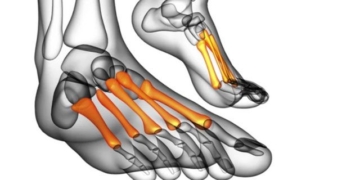Many people in Canada are experiencing neurological symptoms such as hallucinations and memory loss. The question of whether this mysterious illness is real remains highly controversial.
New York Post reports that in New Brunswick, Canada, the number of people diagnosed with this obscure brain disorder continues to rise.
Symptoms such as hallucinations, muscle atrophy, vision problems, memory loss, and abnormal movements were first reported in 2015 among 48 patients.
However, some medical experts and local residents claim that the actual number of cases is much higher, potentially exceeding 200.

The number of cases of the mysterious brain disorder is increasing. (Photo: Freepik).
An Unusual Illness
Additionally, some unusual cases have appeared in younger individuals, who typically do not exhibit symptoms such as memory loss or other neurological issues.
According to Toronto Star, on January 30, neurologist Dr. Alier Marrero wrote in a letter to the medical director of New Brunswick and the federal public health director: “I am very concerned about the number of individuals with early-onset neurological syndrome. For over a year, I have been monitoring 147 cases, aged between 17 and 80 years. Among these, 57 cases had early onset, and 41 cases began when they were still young.”
As of 2021, there have been 9 reported deaths attributed to this mysterious illness.
In a 2021 investigation, the Canadian government suspected environmental toxins as the cause of the dangerous brain disorder. However, the investigation was abruptly halted.
According to the podcast Canadaland, in a final report released in February 2022, the New Brunswick Public Health Agency declared there was no evidence of an unexplained neurological syndrome.
The authors noted: “Symptoms vary case by case, and there is no evidence that these patients share the same unexplained syndrome. Therefore, the investigation has concluded.”
Suspicions of Pesticides Causing Illness
However, Dr. Marrero and many others suspect that this disorder may be linked to the use of pesticides in rural New Brunswick.

Neurologist Dr. Alier Marrero is one of the few experts concerned about this unusual syndrome. (Photo: The Friends of The Moncton Hospital Foundation).
Glyphosate, a herbicide used in agriculture, forestry, and household weed control, is under scrutiny.
The Guardian reported that in Dr. Marrero’s letter, he warned that recent laboratory tests on patients showed clear signs of exposure to glyphosate, as well as other compounds related to herbicides.
Dr. Marrero noted that the phosphorus in glyphosate could stimulate harmful algal blooms. Blue-green algae, also known as cyanobacteria, can be harmful to humans and lethal to animals, including pets.
According to Toronto Star, those who believe in the brain disorder assert that in reality, at least 200 individuals have fallen ill.
Some patients tested positive for multiple environmental toxins, including glyphosate, at levels up to 40 times higher than the average limit.
Although the 2021 investigation was halted, a group of patients and their families in New Brunswick remain determined and are urging both federal and provincial authorities to conduct a comprehensive investigation into this disorder.
Steve Ellis, a believer in the brain illness, stated: “We are calling on Federal Health Minister Jean-Yves Duclos to allow Canadian scientists to speak the truth. We also want the Public Health Agency of Canada to uphold the Canada Health Act and invite federal experts to conduct an investigation.”
Ellis’s father, Roger Ellis, was one of the first 48 cases diagnosed with the mysterious brain disorder.
Stacie Cormier, another advocate, shared: “For nearly a year, we believed that a thorough and accurate public health investigation was being conducted, but that has not happened.”
Cormier’s daughter, Gabrielle Cormier, had to drop out of college and give up her passion for figure skating at the age of 20 when she suffered memory loss, vision problems, and was unable to stand for more than a few minutes.
In 2021, she made her last visit to an ice rink. She shared with CTV News: “I want to go to the rink one more time because I’m afraid I will die, and I want to stand on the ice one last time.”


















































